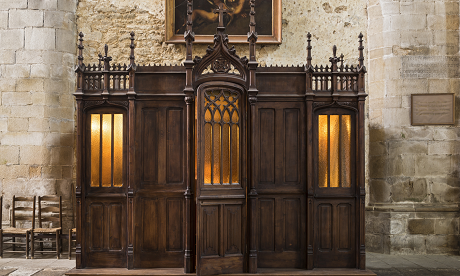Confession cannot be heard by telephone says a Peruvian bishop.
His decision comes just five days after authorising priests in his diocese to do so.
Last week, Bishop Reinhold Nann told priests of his diocese that while they could not hold public Masses or religious services, they could hear sacramental confessions by telephone.
He felt the COVID-19 pandemic and obligatory social isolation in Peru should allow confessions to be heard this way.
Nann has since had to retract his decision, saying the of confessions by telephone “is annulled” in light of Vatican guidance.
That guidance called for “prudent measures to be adopted in the individual celebration of sacramental reconciliation, such as the celebration in a ventilated place outside the confessional, the adoption of a convenient distance, [and] the use of protective masks.”
Nann said as the guidance “did not make mention of confession on the telephone,” he changed his instructions.
Fr James Bradley, an assistant professor of canon law at The Catholic University of America, is says offering confession through the telephone wouldn’t be right.
“The nature of confession, like all the sacraments, involves a personal and ecclesial encounter with Jesus Christ, who is the Word made Flesh.
“A virtual reality can never replace the reality of the incarnation. We can deepen our faith through watching a livestream of Mass, but we all know: it’s not the same as being physically present,” he saysA.
There are also practical issues that relate to the nature of the sacrament of confession, Bradley said.
For example, a telephone call or online meeting raises concerns about privacy, anonymity, and safeguarding.
Fr Thomas Weinandy, who is a member of the Vatican’s International Theological Commission, says a “physical presence is absolutely needed for the validity of the enactment of the sacrament.”
“The reason I say that is because the sacrament is the action of Christ performed by the minister, and for that action to take place, the priest and the penitent must be in communion with one another, in a physical manner.”
He went on to explain this further:
“The sacraments flow from the Incarnation, and because of that, there has to be a bodily presence of the one who is enacting the sacrament, and the one who is receiving the sacrament. They’re doing the sacrament together.
“The Incarnation sets the framework for the sacramental order. Sacraments by their very nature, are incarnational signs that effect what they symbolize and symbolize what they effect, and one must be a part of that sign and reality to participate in the sacrament,” he said.
Source
- Catholic Herald
- Image: America Magazine
